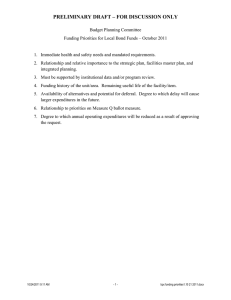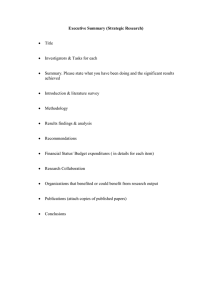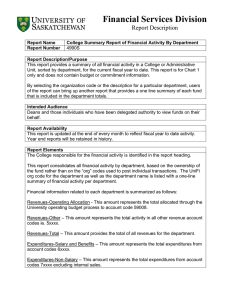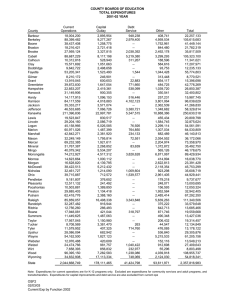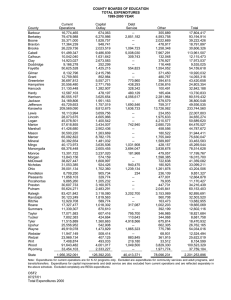DEFINING THE PROBLEM
advertisement
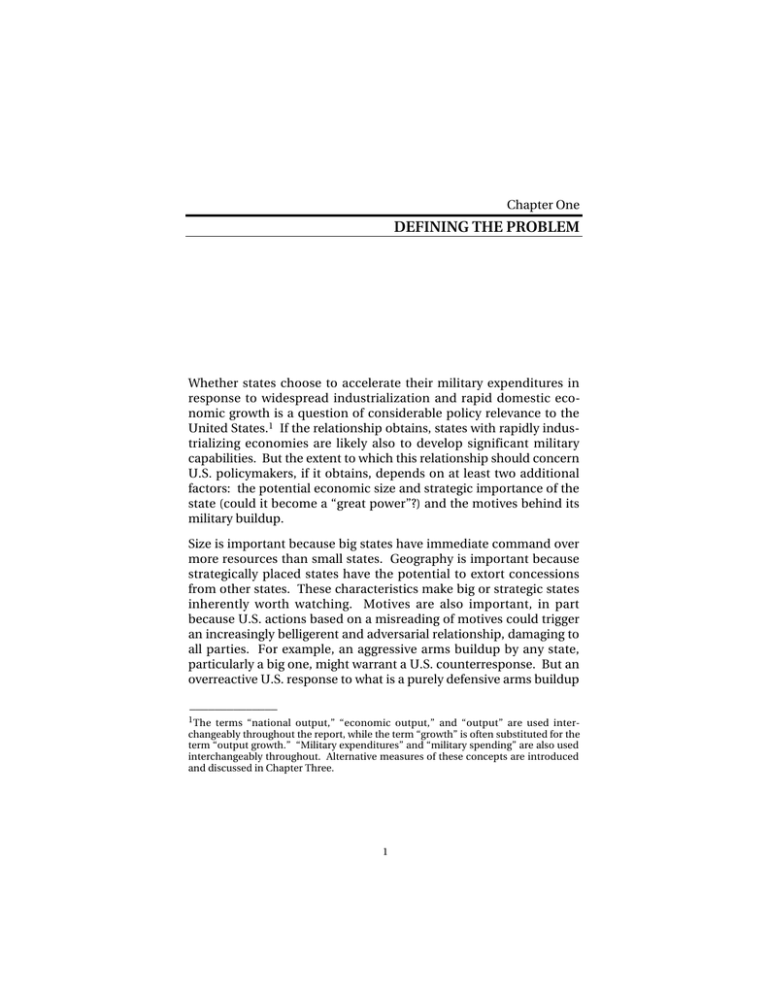
Chapter One DEFINING THE PROBLEM Whether states choose to accelerate their military expenditures in response to widespread industrialization and rapid domestic economic growth is a question of considerable policy relevance to the United States.1 If the relationship obtains, states with rapidly industrializing economies are likely also to develop significant military capabilities. But the extent to which this relationship should concern U.S. policymakers, if it obtains, depends on at least two additional factors: the potential economic size and strategic importance of the state (could it become a “great power”?) and the motives behind its military buildup. Size is important because big states have immediate command over more resources than small states. Geography is important because strategically placed states have the potential to extort concessions from other states. These characteristics make big or strategic states inherently worth watching. Motives are also important, in part because U.S. actions based on a misreading of motives could trigger an increasingly belligerent and adversarial relationship, damaging to all parties. For example, an aggressive arms buildup by any state, particularly a big one, might warrant a U.S. counterresponse. But an overreactive U.S. response to what is a purely defensive arms buildup ______________ 1 The terms “national output,” “economic output,” and “output” are used inter- changeably throughout the report, while the term “growth” is often substituted for the term “output growth.” “Military expenditures” and “military spending” are also used interchangeably throughout. Alternative measures of these concepts are introduced and discussed in Chapter Three. 1 2 Military Expenditures and Economic Growth might be counterproductive, reinforcing the fear that sparked the buildup in the first place. We examine whether five historic great powers—Germany, France, Russia, Japan, and the United States—undertook dramatic increases in their military spending on entering their “takeoff” period of rapid economic growth and industrialization. 2 We choose these states because their behavior may provide useful insights into the behavior of other potential powers either on the cusp of, or already undergoing, a similar economic takeoff. (A sixth power, the United Kingdom, is not included because its takeoff period occurred considerably before the others.3) Formally, we set out to answer the following research questions: 1. To what extent did movements in military expenditures match movements in output levels and rates of growth in each of the relevant countries during the period 1870–1939? 2. What are the most plausible explanations for the increases in military expenditures that took place in each country? Although there is an extensive economics and international relations literature on the relationship between economic growth and increased military expenditures, it does not adequately establish answers to these two questions. One reason is that most empirical studies set economic growth as the independent variable, focusing on the effects of military expenditures on economic growth rather than the other way around. A second reason is that we found no studies that look at the military expenditures–growth relationship in the context of the historical experience of great powers. We believe that this context is important for the reasons stated above. ______________ 2 The concept of takeoff, made prominent by W. W. Rostow’s celebrated 1960 volume, The Stages of Economic Growth, refers to a period in which nations experience dramatic economic transformation that manifests itself through growth rates far greater than the historical norm as well as critical alterations in the structure of the national economy. 3 Although its economic take-off happened before the modernization of the great powers we examine here, future research should consider adding the British Empire, since its geography, and therefore its strategic position, mirrors the United States in many ways. Italy and the Austro-Hungarian Empire are different matters. We exclude them from the analysis because their capabilities fell far short of the other great powers we examine over the nearly 70-year period. Defining the Problem 3 Admittedly the difficulties of obtaining adequate data for such a study are daunting, and we have by no means surmounted them all. Nevertheless, we feel that even imperfect data are worth exploiting if they can clarify these important questions. We would like this report to be viewed as an effort at organizing limited, patchy, and disparate data in a way that allows us to explore a problem of great interest to policymakers. In this report, we address question 1 in quantitative terms. We provide empirical estimates of the sign but not magnitude of the relationship between military spending, output, and output growth. Question 2 is addressed exclusively in qualitative terms not only because we lack the quantitative data required to discriminate among alternative hypotheses, but also because alternative hypotheses must be generated within a historical context. However, the alternative hypotheses that we propose are elaborated in some detail, and the data requirements for discriminating among them are identified. By so doing we provide a set of indicator variables we hope will be useful to policymakers when analyzing economic and military trends in newly rising powers. This report is organized as follows: Chapter Two surveys the existing literature for findings about the relationship between economic growth and military spending. Chapter Three presents our empirical findings on the historical relationship between military expenditures and growth for Germany, France, Russia, Japan, and the United States. Chapter Four outlines alternative hypotheses about the military expenditures–growth relationship and identifies indicator variables. Chapter Five presents qualitative historical evidence on the alternative hypotheses. Chapter Six offers thoughts on whether the United States ought to worry about large, fast-growing economies in light of the historical record. While this report should be of interest to the intelligence community, the Department of Defense, and U.S. policymakers as a whole, it should also be of value to academics and scholars interested in the relationship between economic growth and military power.

